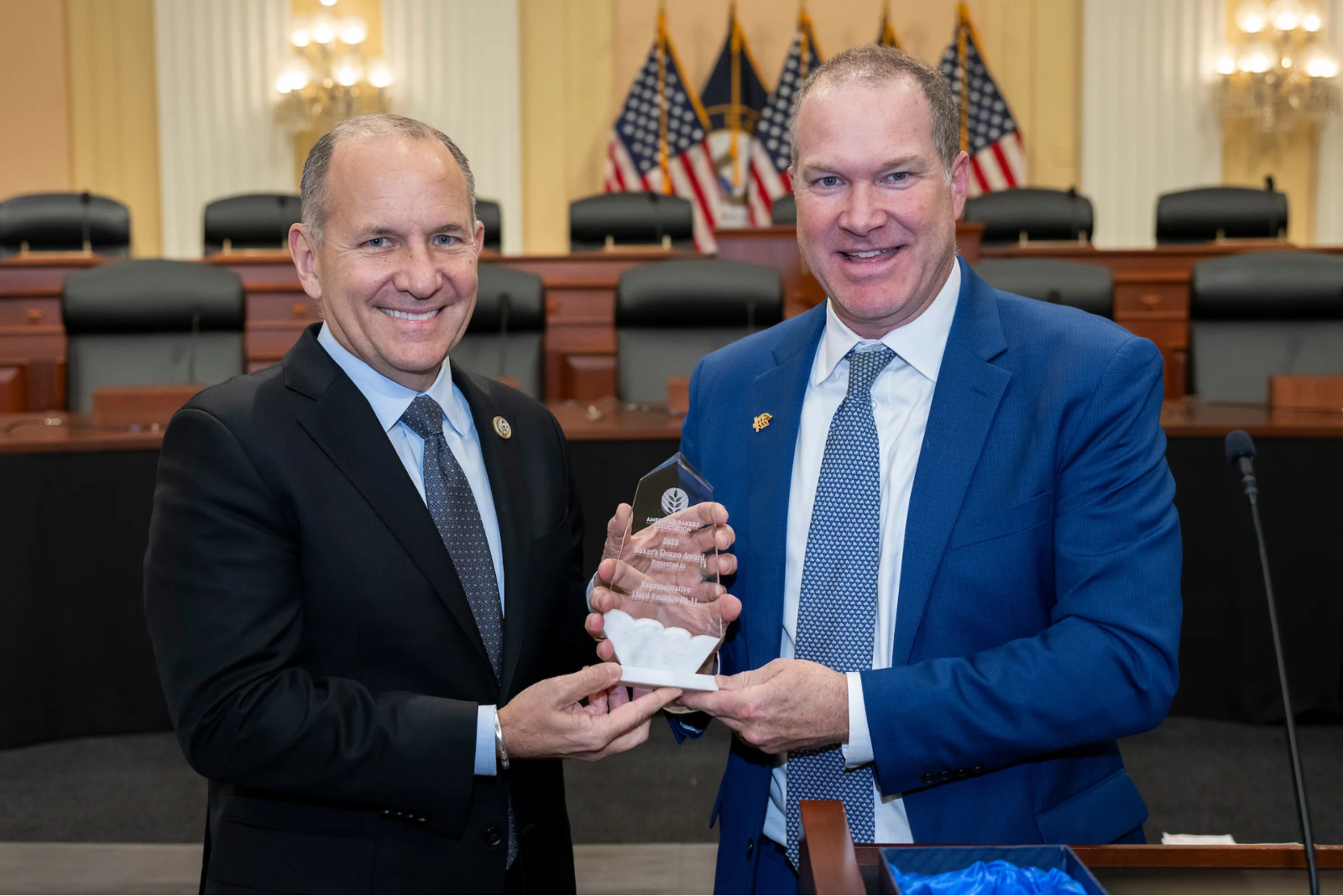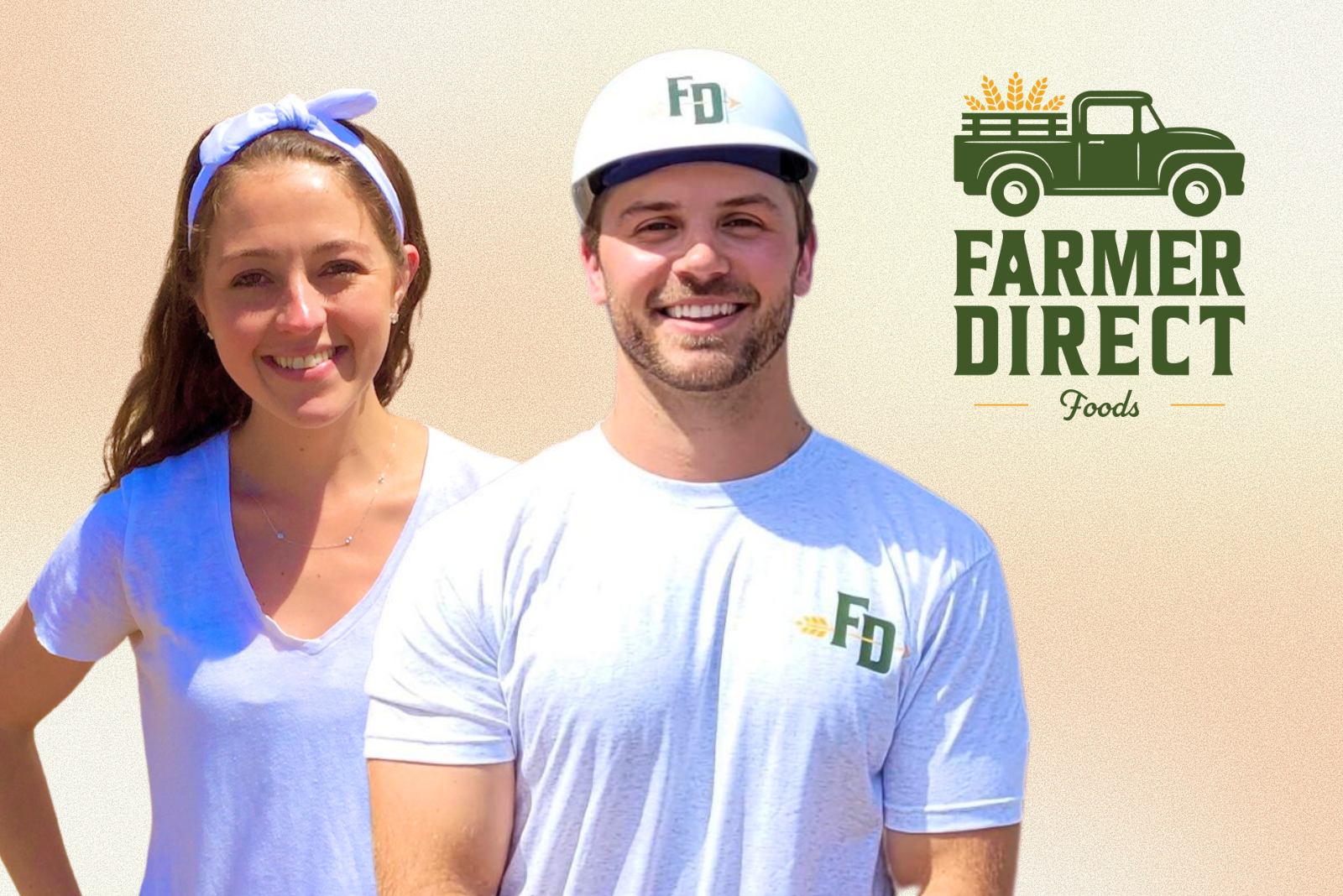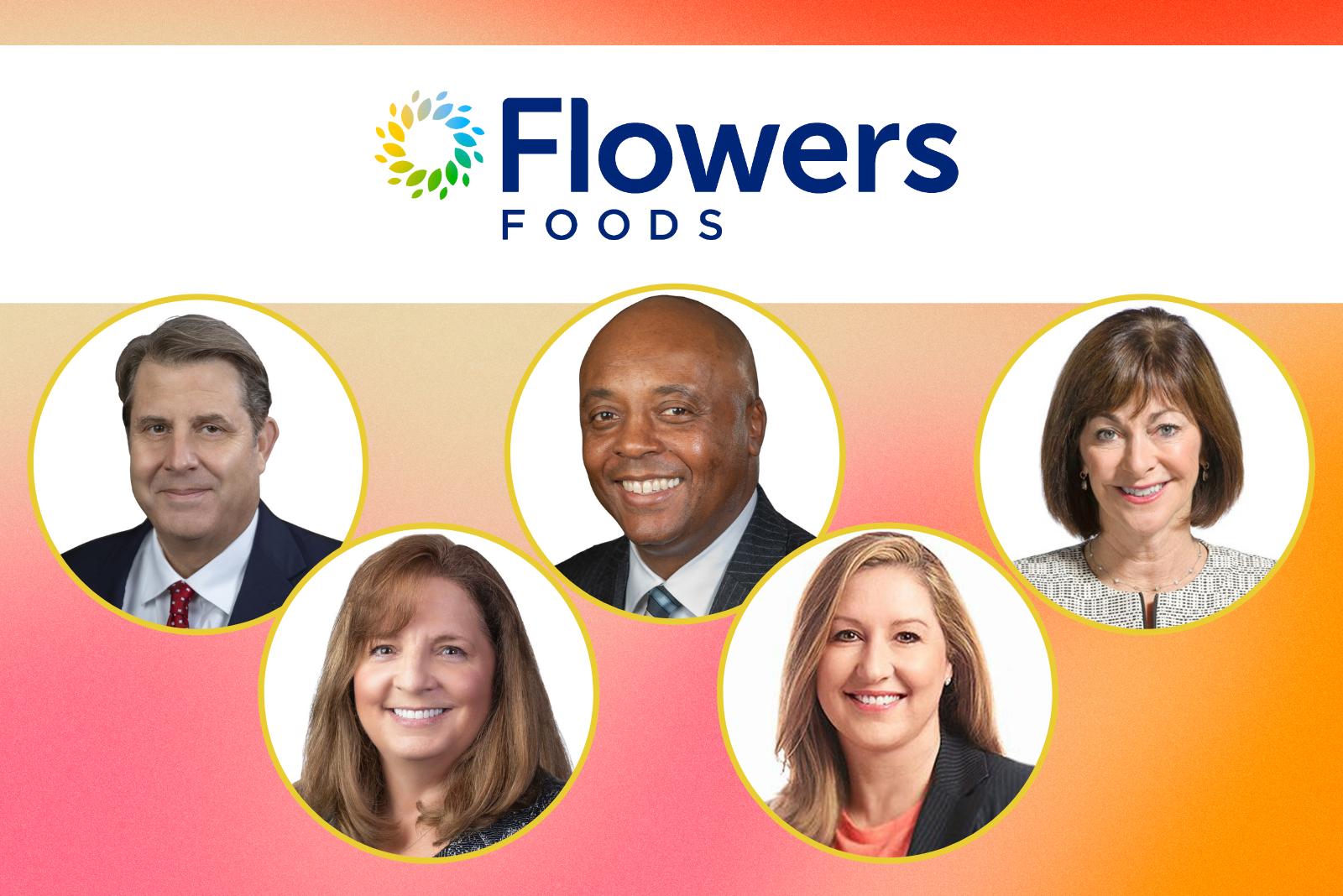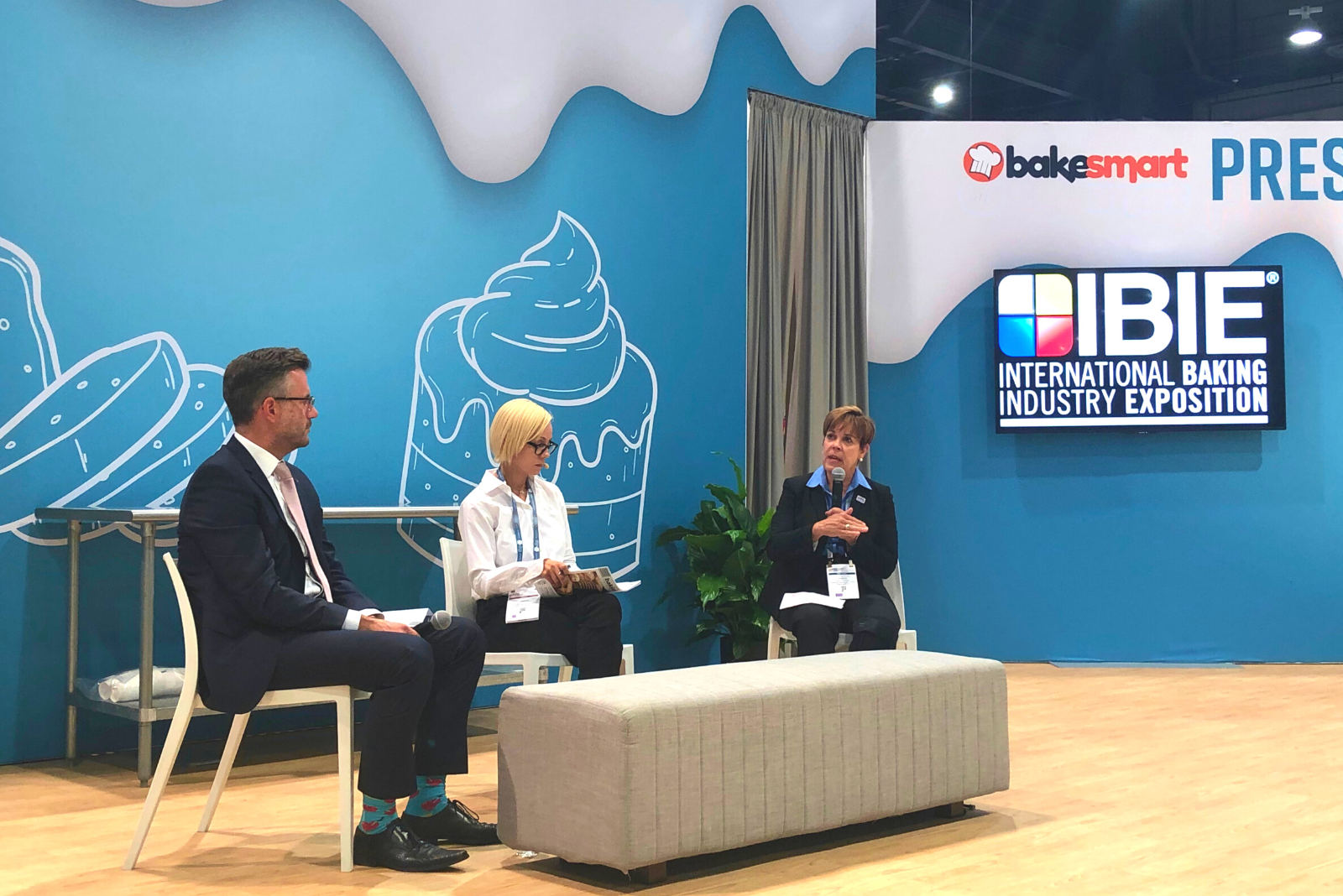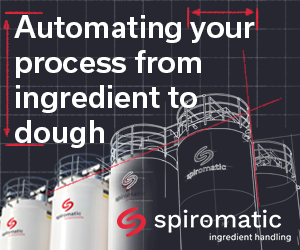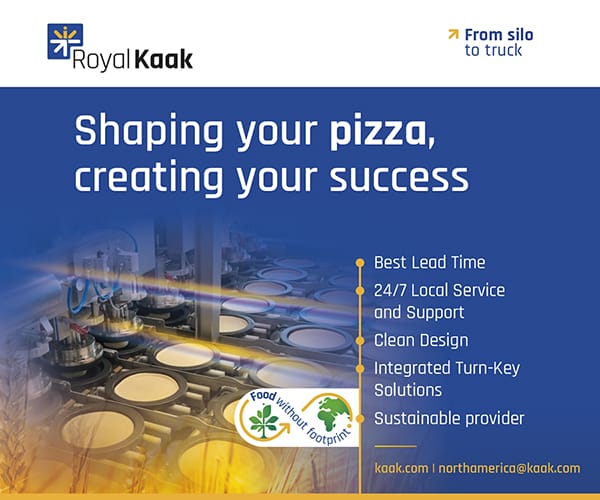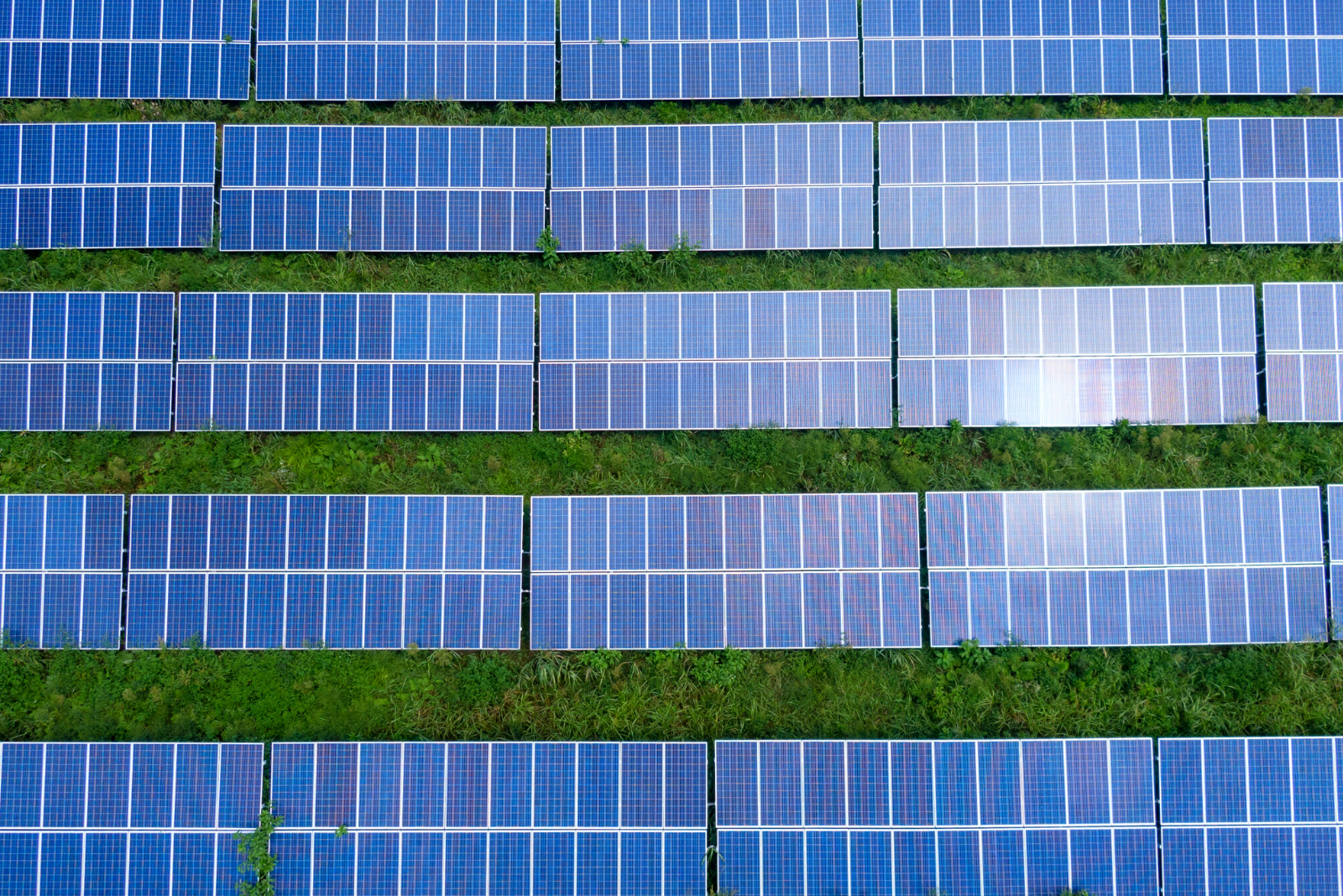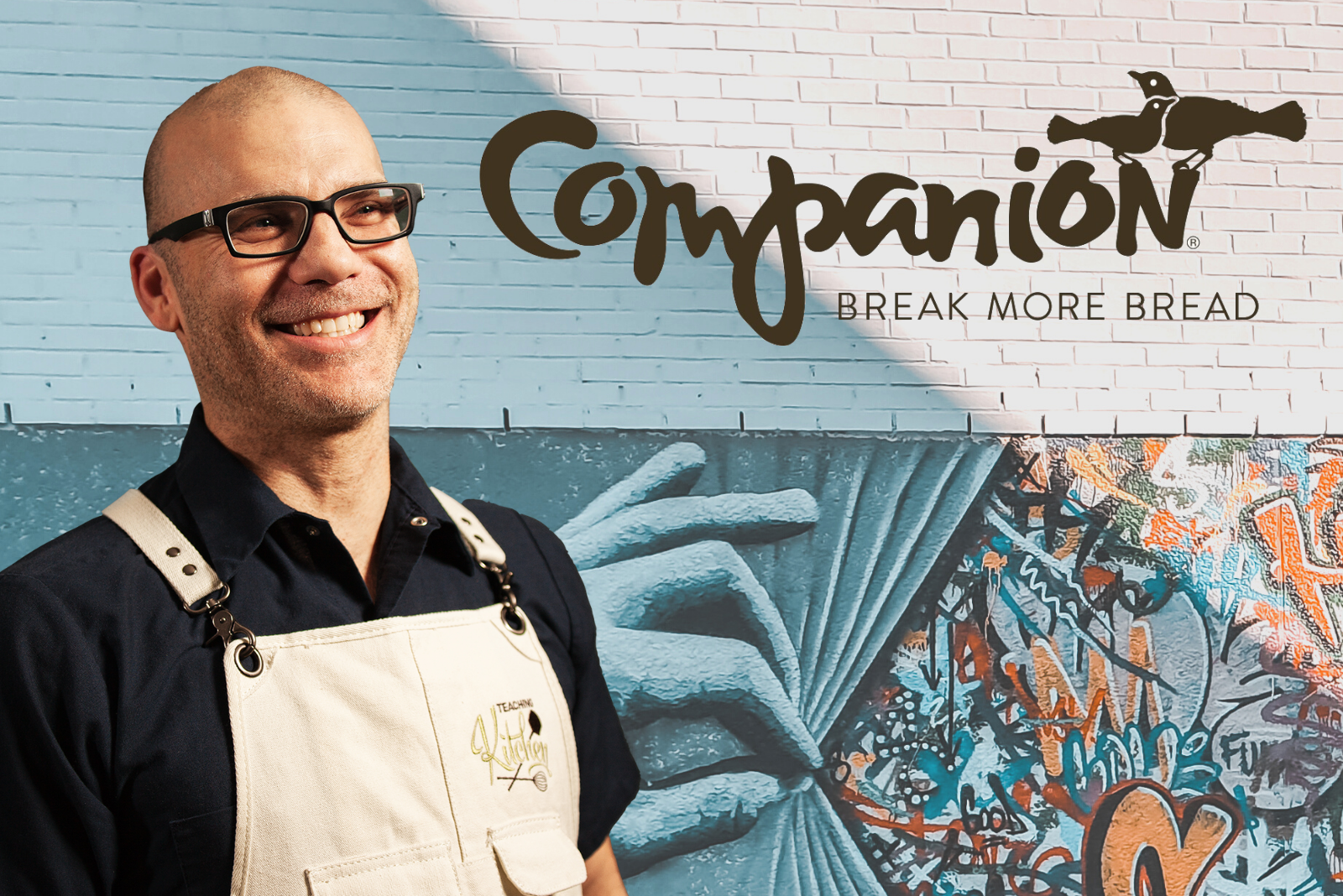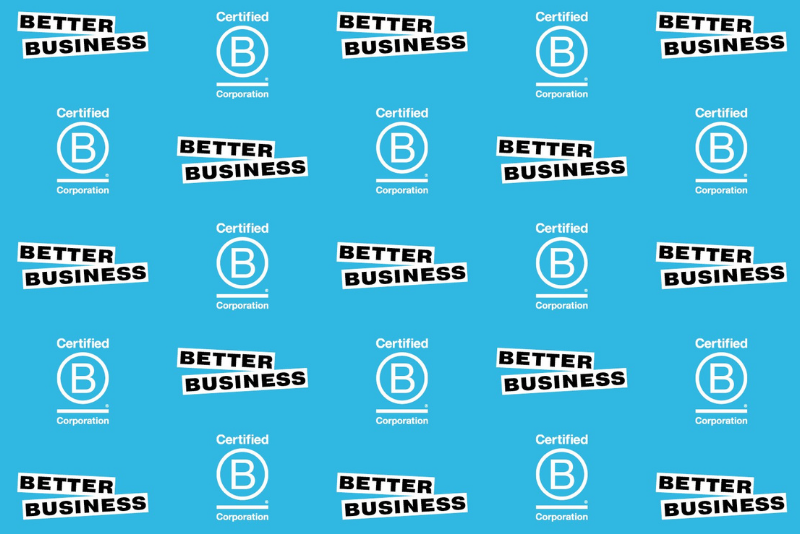LAS VEGAS — In a panel discussion at the International Baking Industry Exposition (IBIE), being held Sept. 18-21 in Las Vegas, baking industry leaders from the US and Germany joined in a conversation around one question: Is it efficient to be sustainable?
The panel included Daniel Schneider, secretary general of the German Bakers’ Confederation, and Rasma Zvaners, VP of regulatory and technical services at the American Bakers Association (ABA). Moderated by Catalina Mihu, editor-in-chief of Food2Multimedia, the discussion explored how bakers are keeping sustainability commitments top-of-mind while balancing other volatile conditions.
These challenges vary between the two countries. While the US and Germany are both struggling with inflation and supply chain challenges, Europe’s problems are compounded by the energy crisis.
“We’re not getting any gas from Russia because of the war. We used to get around 50 percent of our gas from Russia, and 60 to 70 percent of our ovens use gas,” Schneider said.
In the US, labor disruptions have been top-of-mind. Throughout IBIE, attendees and presenters alike have spoken about their difficulties finding workers and keeping them around.
“There are more than 12,000 job openings in the baking sector right now,” Zvaners said.
“As we create more transparency in the supply chain, [regenerative agriculture] is going to become a larger conversation within sustainability even just a year or two from now.” — Rasma Zvaners | VP of regulatory and technical services | American Bakers Association
Because of these immediate challenges, some bakeries have pushed sustainability to the back burner. But according to Schneider and Zvaners, there are promising advancements in both countries that point to a much greener future.
“In Germany, sustainability doesn’t just mean the environment. The Bakers’ Confederation represents many small, craft bakers. There’s a lot of heritage and culture there,” Schneider said. “Right now, they’re thinking about sustainability as: How do I continue to grow and to even just stay open?”
The prevalence of small “mom-and-pop” operations throughout Europe means shorter supply chains as well, which slashes the carbon emissions from transportation. The German Bakers’ Confederation has advocated for more government funding for these local bakeries to invest in their business, as well as upgrades to more green and renewable energy sources.
The green energy movement looks much different in the US. It’s much more driven by regulations from the Environmental Protection Agency, with which the ABA partners on its ENERGY STAR program. This initiative has helped bakery emerge as a frontrunner across industries when it comes to energy efficiency. It comes down to incentivizing bakeries to monitor and record environmental metrics such as carbon emissions and energy consumption.
The next frontier? Regenerative agriculture. Zvaners noted tremendous growth in government-funded programs that help growers improve their agricultural practices. The US Department of Agriculture is actively working to educate and engage farmers on practices that protect biodiversity, promote soil health and improve water conservation, as opposed to more conventional practices.
“Many of our bakers have relationships with their direct growers, and as we create more transparency in the supply chain, this is going to become a larger conversation within sustainability even just a year or two from now,” Zvaners said.
Both Schneider and Zvaners agreed that it’s not impossible to improve both sustainability and efficiency. And awareness of these issues — as well as the resources for pursuing them — are constantly growing.
“It’s an ever-changing process,” Zvaners said, “with the goal to continually improve.”
